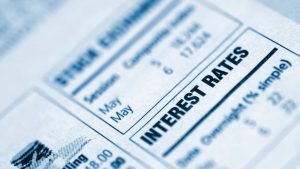Down 16% from its year high, GSK’s share price looks 68% undervalued to me now despite strong H1 results!


GSK’s (LSE: GSK) share price has dropped 16% from its 10 September one-year traded high of £16.67.
This is despite a strong Q2 report on 30 July, including operating profit rising 33% year on year to £2.023bn. For H1, this was up 41%, at £4.239bn.
Earnings per share over the quarter increased 35% to 35.5p, while over the half it rose 45% to 75.3p. It is such profits growth that is the engine for any firm’s share price and dividends over time.
Cash generated from operations jumped 47% to £2.433bn, which can be another powerful driver for growth.
Much of this extremely robust performance stemmed from GSK’s Specialty Medicines division. This saw a 15% increase in sales in Q2 to £3.327bn, while in H1 it rose 16% to £16.26bn. Oncology was the main driver in the division, with a 42% leap in sales in Q2, making a 47% increase over H1.
Forecast performance from here
Given these numbers, GSK expects 2025 revenue and profit towards the top end of its forecast range. Revenue is the total income made by a company, while profit is what remains after expenses are deducted.
More specifically, it sees revenue rising 3%-5%, with core profit growth per share of 6%-8%. The company also expects five new approvals from the US Food and Drug Administration this year.
GSK added that these projections include the impact of US tariffs in place so far and expected levies on European goods.
Longer term, the firm anticipates 14 key developments between now and 2031 that each have peak-annual-sales potential of £2bn+.
That said, there is a risk that the US might further increase tariffs on pharmaceutical products. President Donald Trump sent a letter to 17 pharmaceutical firms – including GSK – to reduce pricing for US Medicaid enrollees. GSK has said that it is in talks with the Trump administration about ways to lower US drug costs.
As it stands, consensus analysts’ forecasts are that the firm’s profits will rise by 14.2% every year to end-2027. The consensus projection is that return on equity will be 39.7% by that point.
How does the share valuation look?
It is crucial to appreciate that price and value are different things. The former is whatever the market will pay for a stock at any given time. The latter is what it is worth, based on underlying business fundamentals.
GSK’s 1.8 price-to-sales ratio is very undervalued against its peer group’s average of 4.7. These firms comprise Merck KGaA at 2.1, AstraZeneca at 4, CSL at 5.5, and Zoetis at 7.
The same applies to GSK’s price-to-earnings ratio of 16.3 compared to a competitor average of 24.8.
And it also looks very cheap at a price-to-book ratio of 3.8 against a 6.1 peer group average.
A discounted cash flow (DCF) valuation pinpoints where any firm’s share price should trade. This is derived from cash flow forecasts for the underlying business.
In GSK’s case, the DCF shows its shares are 68% undervalued at their current £14.02 price.
Therefore, their fair value is £43.81.
Given the enormous discount to fair value and the firm’s strong profit growth prospects, I will buy more of the stock very soon.
The post Down 16% from its year high, GSK’s share price looks 68% undervalued to me now despite strong H1 results! appeared first on The Motley Fool UK.
More reading
- Investors hate these 2 FTSE income stocks! Is this an opportunity?
- Why passive income investors should consider these 3 defensive stocks in 2025
- Down 18% since September, is it time for me to capitalise on GSK’s bargain-basement share price?
- The FTSE 100 sits at a record high. But some stocks still look dirt cheap!
- See what £10k invested in ailing GSK shares is worth today…
Simon Watkins has positions in AstraZeneca Plc and GSK. The Motley Fool UK has recommended AstraZeneca Plc and GSK. Views expressed on the companies mentioned in this article are those of the writer and therefore may differ from the official recommendations we make in our subscription services such as Share Advisor, Hidden Winners and Pro. Here at The Motley Fool we believe that considering a diverse range of insights makes us better investors.





